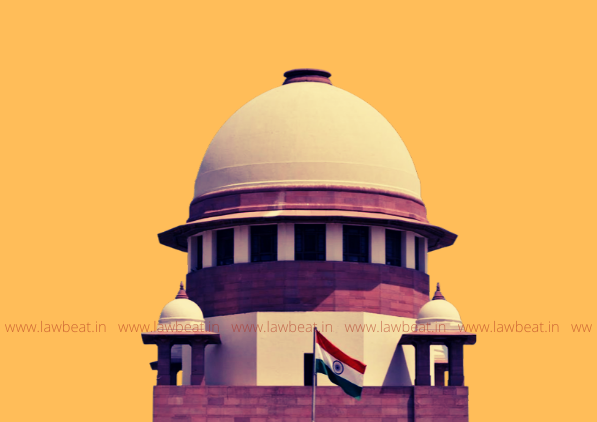"Marital Conditions Under Muslim Law Provide Sustenance To Muslim Women": Muslim Woman Moves Application In Supreme Court In PIL Seeking Uniform Grounds For Divorce

An application for impleadment has been moved in the matter of Ashwini Kumar Upadhyay v. Union of India seeking Uniform Grounds of Divorce.
The application has been moved by Ms. Amina Shervani, who is Muslim by faith and got married as per Muslim rites and traditions. It is the contention of the applicant that the said Writ Petition has been filed in contravention to Articles 25 and 26 of the Constitution and any orders passed herein would directly affect the applicant, hence, it is imperative that the views of the applicant are considered by the Court.
Following are the broad submissions of the Applicant:
- Violation of Article 25 & Article 26 of the Constitution
The applicant says that the said Writ Petition is a deliberate attempt to interfere with the customary practices and usages that are protected under Articles 25 & 26 of the Constitution of India and the divorce issue raised transcends essentially into the domain of cultural & customary rights that are intertwined with the right to freely profess and practice religion. [Reliance is placed on Riju Prasad Sharma v. State of Assam, (2015) 9 SCC 461]
- Methods available to Muslim Women for obtaining Divorce
It is submitted that the Muslim Personal Law provides to a Muslim woman specific options through which she can divorce her husband, namely:
- Talaq-e-Tafweez; the wife’s right to divorce her husband is like that of the husband if the same has been incorporated in the nikahnama or where such a delegation has been made by the husband on a subsequent date.
- Khula; The wife can get her marriage dissolved through Darul Kaza (Shariat Court)
- Talak-e-Mubarrah; Divorce by mutual consent
- Fask; The wife can get an annulment of marriage through Darul Kaza (Shariat Court)
- Dissolution of Marriage by Court; The wife can move the regular courts under the Dissolution of Muslim Marriages Act, 1939
- Rights under Muslim Marriage Agreements
Since the Muslim marriage is contractual in nature, parties are allowed to impose conditions for regulating their matrimonial relations. Such marital conditions provide adequate sustenance to Muslim women after dissolution of marriage as well as during the marriage.
For example, through the marriage agreements, Muslim women are allowed, under Muslim law, inter alia, to:
- Divorce the husband on the happening of certain contingencies [Sabra Jan v. Abdul Raoof, AIR 1921 Lah 194]
- Leave the husband’s house in case of ill-treatment or disagreement [Banne Saheb v. Abida Begum, AIR 1922 Oudh 251]
- Claim fixed or separate maintenance in certain circumstances [Mohd. Muinuddin v. Jamal Fatima, AIR 1921 All. 152]
- Impose a condition on the husband to provide maintenance for the children of his wife’s former husband or to provide some special allowance to the wife by way of maintenance. [Youssef Ali v. Fyzoonisa, 15 WR 296]
- Provisions of Mediation & Speedy settlement of matrimonial disputes
It is also submitted that the resolution of matrimonial disputes through mediation is provided for under Islamic matrimonial jurisprudence. Further, such dispute settlement protects the parties from protracted adversarial litigation which entails immense hardship and humiliation to women in particular.
- Right to Mehr
Right to Mehr is a Quranic right. The said right finds a specific mention in Chapter IV verse 3 of the Holy Quran wherein it is stipulated that:
“And give women their dower freely and if they are able to remit any of it of their own free will, then enjoy it with a good conscience.”
The Mehr is considered to be a symbol of respect to the wife and as such it is meant to be substantial. A meagre amount is wrong under Islamic principles. Further, if Mehr dues are not paid at the time of divorce, the wife is entitled to retain possession of her husband’s property. In case of refusal by the husband to pay the Mehr, the wife is entitled to live separately and during this period she is entitled to claim maintenance from her husband.
